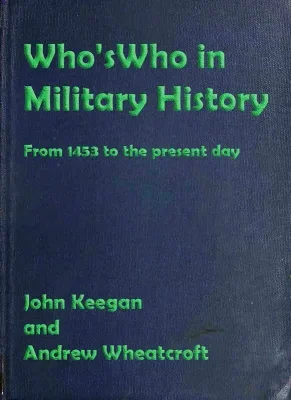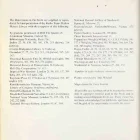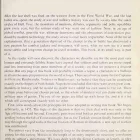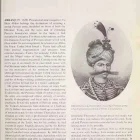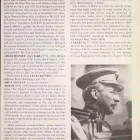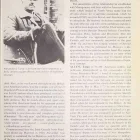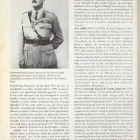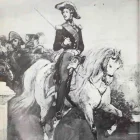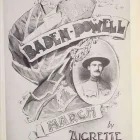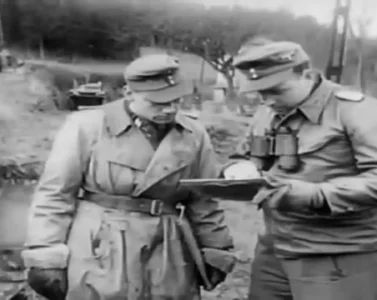- Military Library
- Literature
- General Military Books
- Who's Who in Military History (published 1976)
Who's Who in Military History (published 1976)
From 1453 to the present day (1976)
After the last shell was fired on the western front in the First World War. and the last bullet was spent, the study of war and military history was cast by society into the outer circles of Hell. True, the mountain of memoirs, debates, arguments and petty squabbles grew every year, but the serious study of war went out of fashion. Now, in an age of global conflict, guerrilla war, ultimate deterrents and the obscenities of destruction produced by modern technology, the study of war is once more respectable.
None of the trivial explanations, that a generation deprived of the chance to die in battle has discovered a new passion for combat jackets and war-games, will serve; what we now see is a much more subtle and long-term change in social attitudes. This book, in its small way, is part of it.
As the reader will soon discover, the characters we describe are for the most part very human and extremely fallible. Some have argued that soldiers and sailors are more stupid and less interesting than most members of civil society: on that we preserve a discreet silence. But any page of this book will probably contain a rogue, a charlatan or a buffoon in about the same proportion as the world at large. There are about as many Great Captains as there are Rembrandt's, Tolstoy's or Beethoven's: we believe that they can be numbered exactly on the fingers of both hands. Napoleon concluded that there were seven great commanders in history, and he would no doubt have added his own name to the list. Three of them come before our chosen period, so the whole of modern war can claim only seven military men of genius. The rest of our pages are filled up with lesser fry. and it is a list which will correspond exactly with no other.
First, a few words about the principles we have adopted in writing this book. We begin, arbitrarily, in 1453. The logic of this decision is that we then deal with war only in the Age of Firearms and beyond. Certainly, guns were used both as personal arms and as siege artillery before the fall of Constantinople; but as the Turkish cannon finally battered their way through the aged walls of the last bastion of Roman civilization, a new age of warfare was established.
The entries vary from the inordinately long to the dismissively short, and we offer no excuse for this variety. Moreover, the length of an entry implies no necessary correlation with its subject's importance. We have dealt with the Great Captains at length, as they deserve; but beyond them we have written as the interest or the curiosity of the topic demanded. We have made no attempt to be comprehensive, since such a scheme demands a library, not a single volume. There could never be an agreed list of the interesting or worthwhile figures of military history, but ours is contained in these pages.
- {{#owner}}
- {{#url}} {{#avatarSrc}}
{{name}} {{/url}} {{^url}} {{#avatar}} {{& avatar}} {{/avatar}} {{name}} {{/url}} - {{/owner}} {{#created}}
- {{created}} {{/created}}


